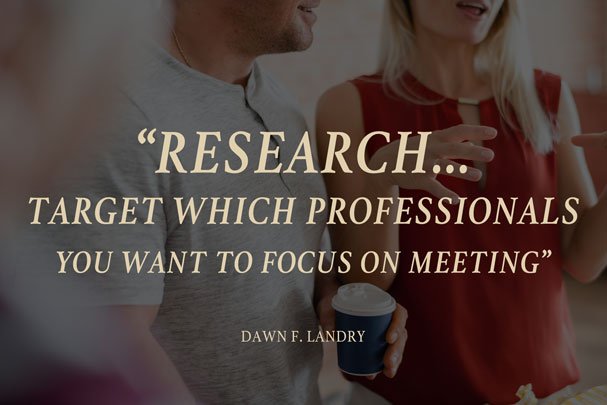Want to Improve? Get a Coach (Consultant or Trainer)
The world’s most intelligent and successful business professionals and athletes leverage the advice and expertise of consultants, coaches, and trainers. These keen and often candid partners serve as mirrors to guide us as we advance our skills as we aim to go farther faster.
Otherwise, how else will we improve?
The Differences Defined:
It feels like lots of folks want to get (or have gotten) into the business of coaching/consulting/training these days.
However, there are distinct differences between each service:
Coaches
Focus on you, helping you define your goals. They ask questions; they listen with limited opinion. They work with you to advance the strengths that you already have (often times revealing some that you are even unaware of) to help you open the door to your potential.
Consultants
Provide answers and impart their point of view; they create strategy and roadmaps for organizational change. They offer advice and counsel in areas in which you have no, or limited, expertise. They may also work with your teams to augment their ability to go farther faster.
Trainers
Are subject matter experts, advanced in a particular topic enough to teach groups by leveraging the lessons they (the trainers) have learned and best practices that they have experienced. Trainers research and then assemble training modules customized to meet their audience at the trainee’s level of proficiency to ensure the program’s maximum effectiveness.
Partner
For ease of reading today, we’ll categorize them all using one word: PARTNER because no matter the service, you must develop trust to garner any possible success. Trust is only achieved with a true partner who has established credibility, credentials, confidence and comfort with you.
Acclaimed Surgeon, Atul Gawande, delves further into this topic in Want to Get Great at Something, then Get a Coach by defining what he’s found to be key: “Having a good coach provides a more accurate picture of our reality; instills positive habits of thinking; and breaks our actions down to then help us build them back up again.”
How to Hire a Partner
The overall intent, whether you are hiring a partner for yourself (individually) or for your company, is to advance you so that you’re not at the same place next year at this time as you are today, no matter where your starting point may be.
Here are my recommendations for hiring the best partner for you and/or your organization:
Get Referrals, Check References and Interview.
With coaching, consulting, and training partners becoming an integral component of companies’ successes these days, you’ll find that many ally organizations and peers have wonderful recommendations. All you have to do is ask them.
Meet with several partner candidates before making a decision. Just as your company is unique, so are your partnering needs. Interview candidates to ensure that they are a good fit and are able to customize a program specific to exceeding your goals/expectations for the engagement.
Dig Deeper
Do your research; get to know the firm and more specifically the person providing the services.
For Business Coaching: What is this person’s track record of success? Do they have a portfolio of work with companies of similar size, industry sector, etc. comparable to your organization? It’s much easier if your partner has a familiarity with your market from which to leverage past experience so that there is a limited learning curve.
For Individual and/or Life Coaching: What is your impression of how this person lives their own life? Are they content? What’s amazing to me is that many life coaches don’t have their own lives together. How can they possibly coach someone else then?
Develop a List of Expectations
Make sure that you have clear expectations regarding what you hope to achieve from your assignment. If you are unclear, then be transparent with your partner at the onset.
A great partner will guide you in understanding realistic, achievable results within a particular time frame.
Be Transparent.
Openly and confidentially share your current situation, warts and all. Without a clear understanding of why you are considering a partner, then your engagement is initiated half-heartedly before it even begins. If you can’t speak honestly and feel that it will be kept in confidence, then that is a clear sign that this is not the right partner for your situation.
Be Receptive.
A qualified, successful partner will respond truthfully regarding your situation at the inception and throughout the life of the assignment. You should encourage them to provide their opinion fully and receive this feedback in the spirit of advancement of you (individually) and for the betterment of your organization. Once again, if this can not be achieved by either party then you do not have the right partner.
The Best Times to Hire a Partner
In Grant Cardone’s Entrepreneur.com article, When to Hire a Consultant, here are just a few of the times when hiring a partner might be considered:
Expertise
You might not have the internal resources or skill set within your company to tackle your project or goal. Using a consultant or power player within your industry might pay big rewards.
Seasoned Change Agent
Navigating office politics and taking the blame for reducing headcount or other cost-cutting measures, consultants are change agent experts and can act as that outside voice to break up the roadblocks and make things happen.
Process Improvement
Your consultant will be an expert or even a leading expert in their field and have years of experience in what you are attempting to solve for the first time. Why try to invent a best practice when a consultant has probably already implemented it multiple times?
Idea Generator
A consultant can bring a fresh perspective to your business that you might not have. They can see the bigger picture of the market and where your company fits into it by being an outsider. The insights they have can boost your internal team to new ways of thinking and approaching problems.
Trainer
By the nature of the job a consultant does, they are natural trainers. Their job is to share their knowledge, insight, and experience. They would be a good choice to do a training course, presentation or do one-on-one or team coaching.
The Ultimate Goal
Remember the intent of whatever your engagement is — to take you from good to great, or great to greater.
You are not hiring a “Yes” person; you want someone who not only reflects a mirror back to you, but also guides you as you create long-term, achievable solutions.
I have provided several great resource links for other articles below. And if you’d like to discuss this further, please contact me at dlandry@authentizity.com.

